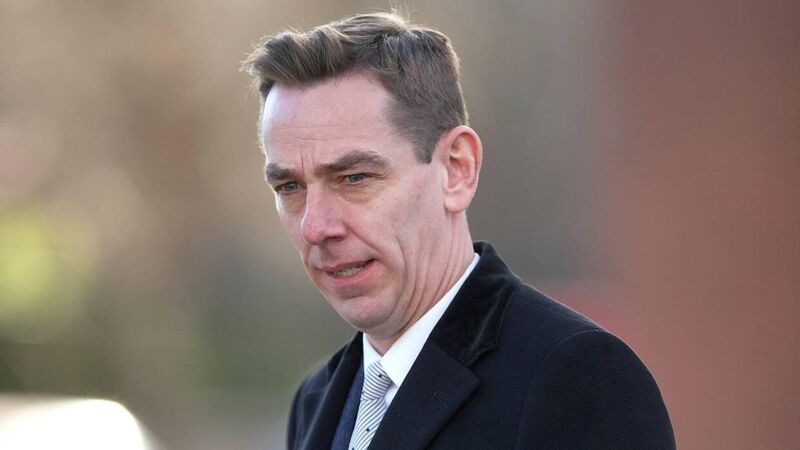Silly money, junkets and hubris at RTÉ are at root of its disgrace

Presenter Ryan Tubridy - no more silly money for the talent, says Colette Sheridan.
There used to be the perception that journalists spent most of their time in the pub, planning their latest junket and filing copy from the boozer. You might have a meeting with a commissioning editor in the pub. It was a honey-pot. There was little advantage to being teetotal. Unless you were networking while skulling back drink, you were missing out, big time.
While I embraced the lifestyle that might include a few launches in the early evening where the drink was free and PRs would approach you to do a story on whatever was being promoted, I now wonder how I got any work done.
Occasional press junkets came my way. The understanding was that you’d write up a travel piece on the city where you were put up for a few days. I recall ‘interviewing’ a Beatles tribute band which was the focus of a press trip to Liverpool. There was a crazy week in Ibiza courtesy of an Irish tour operator. There was the occasional rock concert. But nothing compared to newspaper staffers who got the best junkets.
These days, I’m mostly at the desk, sober and reasonably productive. Which is why I’m a bit aghast at the culture at RTÉ as revealed at the Public Accounts Committee hearing. The slush fund, the ‘barter account’, used to butter up advertisers, saw them enjoying corporate hospitality in Japan and Spain as well as being given Irish Rugby Football Union tickets. Then there were the ‘consultancy fees’ for Ryan Tubridy’s agent, Noel Kelly. Not to mention Tubridy’s fat salary, not all of which was published.
The reality for most RTÉ journalists is hard work, often very good work, with limited resources. But there has always been the so-called ‘talent,’ at the station, overpaid and indulged.
It’s insulting to have an elite and to consider them deserving of substantial six figure salaries while researchers, who make the ‘stars’ look good, have a starting salary of €32,500.
It’s not as if anyone is breaking down doors trying to poach the big names for the competition. There is nowhere for the overpaid to go. No other station is paying huge money for presenters. That is one of many reasons to reduce inflated salaries if the national broadcaster is to survive and have any credibility in the eyes of the licence-fee paying public.
A couple of people have separately said to me that the RTÉ scandal, kicked off by the revelations of secret payments to Tubridy, is akin to the disgraced Bishop Eamon Casey scandal, the so-called catalyst for the downfall of the Catholic Church in Ireland. I don’t quite buy it. It suggests that both RTÉ and the church had been revered sacred cows. But the church was on the decline before Eamon Casey was outed as a hyprocite, having fathered a child that he more or less ignored. Not to mention using parish funds (which were later repaid) towards the upkeep of his son.
It set the agenda for public discourse. It was a behemoth. But that role has been declining for years with the growth of commercial stations and competition from social media. Many young people wouldn’t even have heard of Ryan Tubridy - until he became the news in the last week or so. But at this stage, the story is much bigger than the former presenter and his swollen pay packet.
Much of what is rotten at the core of RTÉ could be summed up in the admission by the chief financial officer, Richard Collins, that he didn’t quite know how much he earned. When pushed, he said he earned around €200,000 with a €25,000 car allowance. That’s big money for many of us who earn a figure closer to the expenses amount. But when you’re on 200k, you can afford to be careless about money. (By the way, why would someone with a desk job get such a big car allowance?)
Public service broadcasting is important. Without it, you’re talking a constant diet of -type programmes. RTÉ needs to serve the public with complete transparency, accountability – and credibility. No more silly money for the so-called ‘talent.’







 App?
App?




